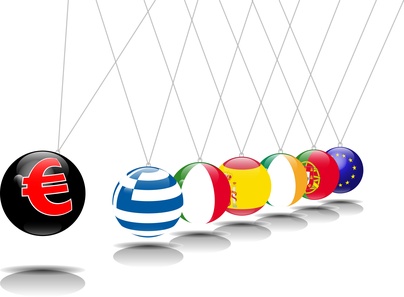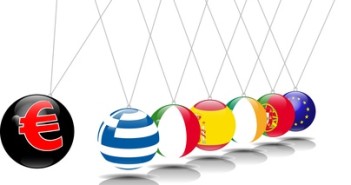The markets have no mercy on Europe’s third and fourth largest economies: Italy and Spain. They are close to crossing the point of no return and to lose market access. The only man with the power to stop it is ECB president Jean-Claude Trichet. Can he be the super hero?
The point of no return is yields of 7%. This is were Ireland and Portugal began talking about a bailout. Spanish 10 year yields are at 6.30%, and Italy’s are at 6.11%. Both countries are also seeing significant sell offs in their stock markets. It is time to stop it.
These levels aren’t only in theory: Both countries recently raised money at high prices, with Italy raising less than desired. The next round of funding will make the debt unsustainable. Roubini’s “prophecy” that Italy and Spain will lose market access is becoming too realistic.
The EU Summit on July 27th, gave the EFSF bailout fund the preventive tools to buy bonds in the secondary market and to prevent a loss of market access. But this ability requires ratification in parliaments. Parliaments are on summer vacation in many countries, and the EFSF (with limited purchase power in any case) will probably have these powers only at the end of 2011.
Italy will need cash in September. Time is running out.
The ECB has the tools
Similar to the Federal Reserve in the US, and the BoE in the UK, the European Central Bank has the ability to print money – create it out of thin air, electronically, just by pressing the button. It is called “quantitative easing”.
The ECB can buy bonds without limitation, lower the yields and keep Italy and Spain going. I’m sure that Bernanke is willing and able to explain this to Trichet.
An immediate quantitative easing program in Europe can stop the bond massacre at once.
It can also restore confidence, and show that there is some kind of leadership in this European summer. Contrary to the EFSF, Trichet doesn’t need parliament approval. He can just do it.
Political Backlash
Trichet was very stubborn in refusing to act, and the ECB hardly bought any peripheral bonds up to now. It did it in May 2010, after refusing to do so, and understanding that there is no choice. Apart from being a limited move, the money used for buying Greek bonds is drained out of the markets, meaning that no flooding was made – a sterilized move.
A massive QE program for Spain and Italy will not be sterilized like the Greek bond buying. It is impossible. So, in addition, to backing off from his previous refusal, Trichet will also find himself unleashing the genie of inflation that he fights so strongly.
Well, the European economies, including the core, are slowing down. Inflation is lower as well, with CPI sliding to 2.5% (annually). This could help Trichet find the desired excuse to change his mind.
EUR/USD
The immediate impact of lower Italian and Spanish yields will be positive for the euro – less risk in Europe means a stronger euro and a weaker dollar, also against other currencies.
In the longer run, a massive program of euro-printing means a devaluation of the common currency – the euro will fall like the dollar falls on QE. A lower euro is currently in the interest of both Spain and Italy, making their economies more competitive.
For more on EUR/USD, see the euro dollar forecast.
Trichet will end his term in 3 months. Does he want to go down in history as the man that let Europe sink? Or is he ready to be bold enough, make a U-turn and save the day?
What do you think?
